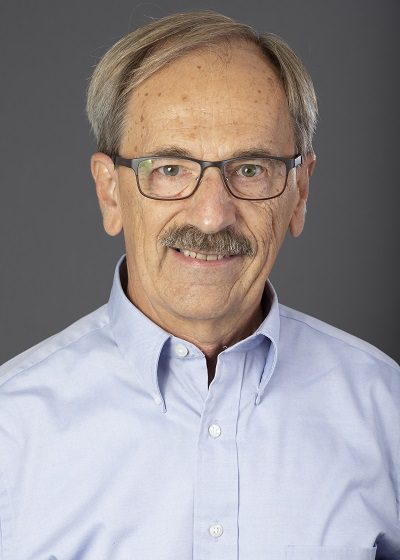From the Editor: Graduating Engineering Students Face New Challenges

The stay-at-home orders due to the pandemic are beginning to be relaxed in some places. For me, at least for some time yet, I’m choosing to act as if everything is not yet back to normal. Whatever I’m called—baby boomer, dinosaur or grandpa—I’m at a high-risk age, so I prefer to be safe for a little while longer. Although my lifestyle has been altered, the negative effects are not as great for me as for many others.
One group that COVID-19 certainly affected negatively is the graduating class of 2020. An immediate concern is the celebration of graduation. Some schools postponed them to a later date, some had virtual graduations, and some simply aren’t having one. But there are other implications.
The Interview Process (Present vs. Past)
I try to volunteer my experience with college students whenever I can. I was scheduled to help students at Valparaiso University by performing practice interviews to give them pointers on how to present themselves in the most-positive manner. The timing of the COVID-19 shutdowns meant the face-to-face mock interviews were canceled; the interviews became telephone interviews.
There was a lot of emailing back and forth to get resumes and set schedules with the students and the Career Center. Most of the students I talked with were back home, so I talked with people from Texas, Wisconsin, Ohio and one international student who was still on campus because he couldn’t get home. This wasn’t the original plan; however, this may be the only type of interview available for these graduating students and for many in the foreseeable future, so we went forward with that idea in mind.
The interview process when I graduated was different. In the early 1970s, the job market for civil engineers was slim (most interviewers said they weren’t hiring—just collecting resumes for when the job market opened up). I had a week or so of interviews on campus and signed up for as many as I wanted. Interviewees spent half an hour talking about classes, grades and summer jobs—then waited for a letter. I was lucky enough to get one job offer from the five or six interviews I had.
I remember the “interview weeks” when I was working at the Indiana Department of Transportation. Students from the engineering colleges, mostly in-state, would arrive at the State Office Building and go from department to department and spend 15 to 30 minutes with whoever was in charge of offering jobs in their group. Interviewers may have talked to as many as 30 students to fill five or six positions. I’m not sure how a student could make enough of an impression to stand out, and it was difficult to track all the applicants. But it was clear the employer was making the selection out of a group of students with little valuable information.
When it was time for me to change jobs, I became more interested in the process of interviewing in the other direction, so to speak. I wanted to know how the prospective position would work for me and whether or not it was a position in which I could make a difference. There had been an evolution in the interviewing process that resulted in a more-interactive process in which both parties were, in effect, interviewing each other. Also, telephone interviews to screen a large number of applicants were becoming the norm.
Upcoming Graduates’ New Normal
Among many new issues, there may not be the traditional type of work situations available. It’s difficult to predict the future job market or what the work environment will look like. How do today’s students and employers decide on the interviewing/hiring process? Is it a valid question to ask about home WiFi and space requirements for your basement office? Are you willing to experience regular health testing?
Assuming first contact is going to be through a telephone interview, my recent mock interview process was, by coincidence, a good turn of events. Most of the students I talked with could discuss their resume (i.e., what they have done as far as classes and internships).
I tried to help them focus on two aspects. One was to find every opportunity during that relatively short time to help the interviewer learn more (and remember more) about the applicant. What do you want them to know that doesn’t show up on your resume? The other tip was to show the interviewer you can be flexible yet still productive in whatever the new work environment is.
One person who recently interviewed for a position submitted videos of her answers to a list of written questions. Her second interview was in a video conference call, but the interviewer wasn’t visible. I’m not sure if these modes of communication are realistic, but perhaps I could create a new job in designing backgrounds for effective interviews.
This current situation is challenging for graduating seniors (and probably next year’s seniors), but it’s also extremely challenging for employers to find the right people in an ever-changing world.
About Robert Schickel
Robert Schickel was born in New Jersey and received his BS in Civil Engineering degree in 1971 from Valparaiso University in Indiana. His career started as a bridge design engineer and expanded to include design of various transportation facilities, including highways, bridges, rail lines and stations, and airport runways. Mr. Schickel managed engineering offices ranging from 20 to 140 people. He also served as a consultant to a large utility company. Mr. Schickel currently resides in Indiana and serves as Adjunct Professor for the College of Engineering at Valparaiso University. He enjoys his retired life at his lake house, playing golf, listening to music and spending time with his family, especially his grandchildren.


